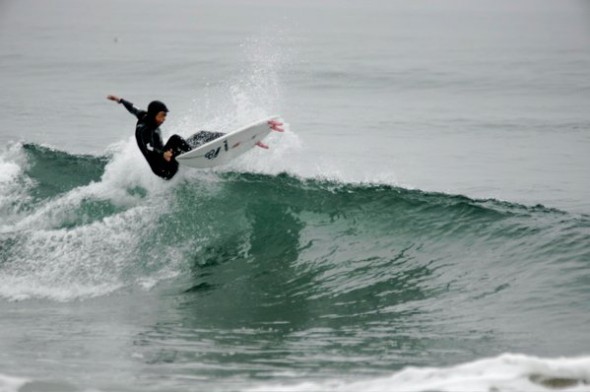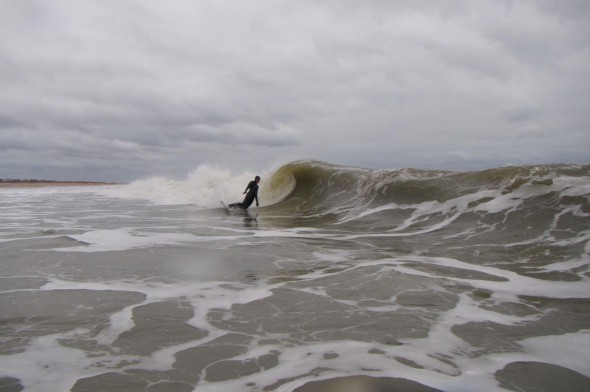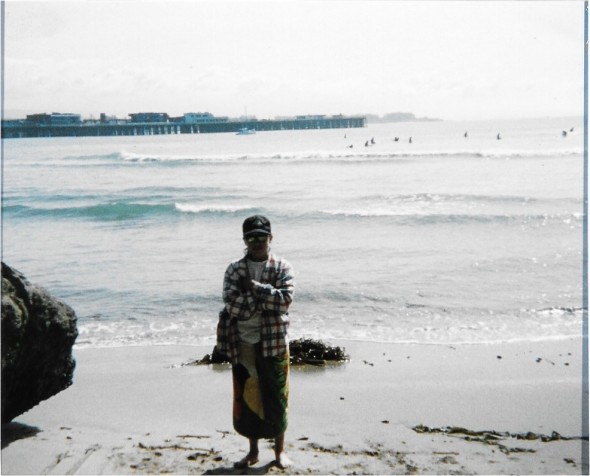SURFING IS… WITH DION MATTISON
When Monterey Bay native Dion Mattison moved to New York from California, it didn’t take long for the city to get under his skin. “I came to New York in 2009 to get my PhD in Philosophy from the New School for Social Research,” he said. “I’m now about a year off from completing that goal and have definitely fallen in love with New York in the process.” An avid and accomplished surfer, he was lucky to find a place where his academic drive and passion for surfing could intersect. When he’s not in the water, he’s writing his dissertation the history of philosophy’s attitude towards fashion, teaching fashion and aesthetic theory courses at the New School or giving private surf lessons through his of Conatus Surf Club (see blog). Read his thoughts on surfing below:
Name: Dion Mattison
Age: 33
Where do you live: Brooklyn (Prospect/Crown Heights)
Years surfing: 32
Surfing is: Ha. I’ve written a ten page paper on this question. The problem I was trying to solve in the paper is why surfing is such a difficult practice to teach (something I do for a living). My hypothesis is that there is a general misunderstanding about what surfing is. It is clearly not just standing up on a wave and riding a board. It is this view of surfing that throws people off when they seek to practice it. It is also unhelpful to try to put it into the art or sport or religion categories. Doing that doesn’t do any work to help us understand what surfing is. In the paper I’m referencing I use Ludwig Wittgenstein’s concept of language-games to define surfing. For Wittgenstein language games are ‘forms of life’ with grammatical structures. So when I say that surfing is not just riding a board on a wave, not art, not a sport, I also mean to say that all of these are a part of surfing, but that they do not make up the whole of it—they are simply parts in its grammatical structure. It is also important to note that for Wittgenstein grammars are not concrete full stop, i.e., there are certain rules that are inviolable, but new ones may arise that come to alter or augment the existing grammar. For example, the use of jet skis in large surf to ensure safety. Surfing’s grammar is comprised of so many things: bathymetric, oceanographic meteorological knowledge (either in scientific or layman’s terms—basic ocean and wave knowledge), surfboard equipment, awareness of the practice’s historicity, lineup etiquette, the pro surfing sport aspect (which of course has its own grammar), social events, etc. There are some rules that take precedence over others for basic knowledge because the stakes are higher—this is why first and foremost surfing is establishing a relationship with the ocean, which by most standards is one of the most powerful and uncanny phenomena known to humankind. It is also about establishing relationships with the other people who have relationships with the ocean (not all who ride surfboards, to be sure)—this comprises a major part of the very crucial ethical dimension of surfing. I could obviously go on and on and explain surfing’s family resemblance to other practices/language-games; I can talk about private language and inner/outer distinctions, and the importance of exemplars and kinship structures (for my own surfing I am forever grateful to my father who taught me to surf and to Taylor Steele for making videos of Rob Machado available in the 1990s), but I think I’ll end soon instead. I want to stress that in defining surfing as a language game I am not promoting some kind of relativism—that surfing is relative to whomever practices it—no that cannot be the case. The advantage of the language game theory is that there is an inherent flexibility—there are artful and sporty and religious aspects to surfing—but there are also concrete rules—the first of which is: respect the ocean.







